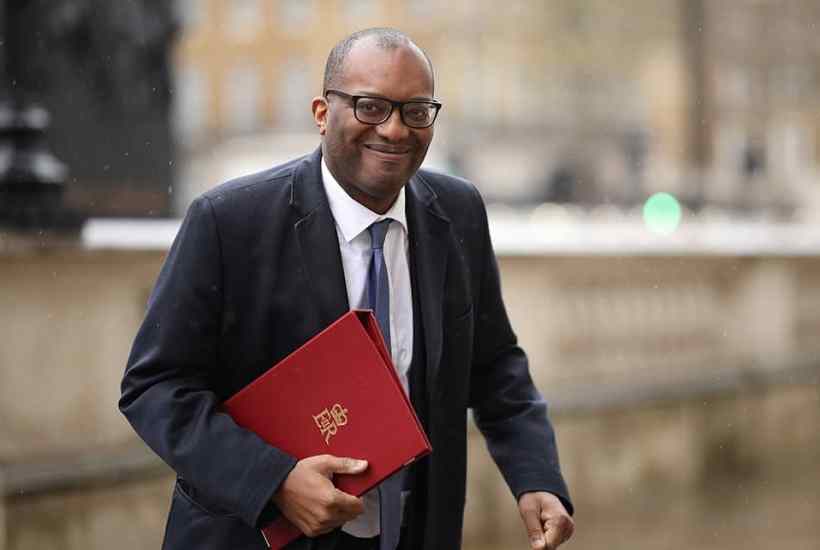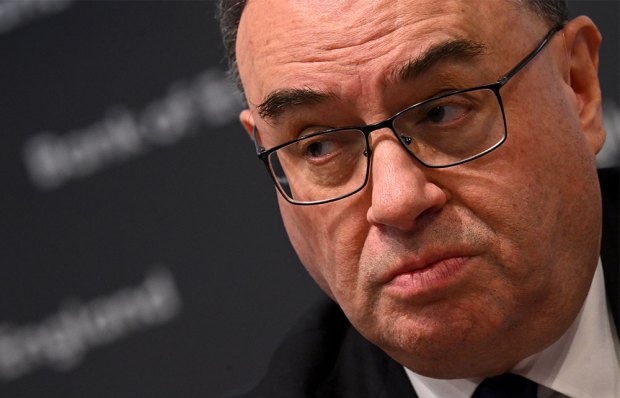At His Majesty’s Treasury, it’s all looking a bit like Year Zero in revolutionary Cambodia. Kwasi Kwarteng’s first act was to sack the respected but ‘orthodox’ permanent secretary Sir Tom Scholar. Now the FT reports the Chancellor ordering underlings to focus ‘entirely on growth’, presumably at the expense of financial discipline. I’m picturing a locked basement of fearful officials labouring under Kwarteng’s lash to translate his forthcoming ‘fiscal event’ – tax cuts on top of massive spending to cap energy bills and unlimited borrowing to pay for it – into the sort of Whitehall language that might make it sound reasonable.
Meanwhile, businesses large and small remain completely in the dark as to the detail and value of the government’s promised six-month energy-subsidy scheme. History will one day judge whether the Truss-Kwarteng economic revolution changed Britain for the better, or simply fizzled out. But in the short term, all that matters is efficient execution of measures to avert fuel and food poverty, widespread civil unrest and a tsunami of bankruptcies this winter. Action please, not gestures and slogans.
Rethinking the City
To the Old Bailey to meet Sheriff Nick Lyons, who succeeds as Lord Mayor in November, having defeated a botched aldermanic conspiracy to knock him out on grounds of his Irish citizenship. A former banker who sits on several insurance company boards, Lyons says the City doesn’t want the Truss government to dilute the Bank of England’s independence, nor does it want ‘a bonfire of regulations’. But it would welcome a shift in tone at the Prudential Regulation Authority in particular – in tune with Kwartengism – towards recognising ‘competitiveness’ as an objective alongside balance-sheet strength.
The PRA still applies EU-derived solvency rules for insurers and pension institutions which, he says, makes it difficult for them to invest in or lend to long-term infrastructure projects – hence desperate calls for foreign money to back new UK nuclear power stations. He also thinks small investors and pension-holders miss out because City fund managers’ traditional preference for cashflow and liquidity makes them unwilling to invest in the high-growth businesses that make fortunes for private equity.
Lyons visualises a £50 billion fund – half from the pensions sector, half from government – designed to bridge that gap and ‘democratise returns from the growth economy’. New regimes, new thinking: having weathered Brexit, the City needs to reassert its role as an engine of national wealth. Lord mayors have little power but the next one at least wants to start a conversation. Andrew Griffith, Kwarteng’s City minister, should break out of the troubled Treasury to visit the Old Bailey.
Battersea parable
Take heart from Battersea power station, which will open to the public next month. The hulk that once supplied a fifth of London’s electricity was decommissioned four decades ago and widely dismissed as a ‘great pink elephant’ that would never find new purpose. Developers came and went, as did unfeasible ideas. A well-known climate-change sceptic even proposed, in the late 2000s, reinstalling coal-fired generators ‘to provide the essential baseload we’ll never get from wind turbines’.
But the Malaysian developers SP Setia and Sime Darby, who acquired the still-derelict 42-acre site in 2012, pressed on doggedly to complete a £9 billion apartment complex plus shops, restaurants and cultural attractions. The useful moral of the story is that all economic challenges can eventually be overcome – with stamina, imagination and plenty of patient capital.
Light my fire
The Prime Minister has commissioned Chris Skidmore MP to conduct a review of the UK’s net-zero targets. She reportedly gave the role to this prominent ‘green Tory’ because backbenchers of that ilk did not believe the new Business and Energy Secretary, Jacob Rees-Mogg, would take the subject seriously. But to be fair to the latter, sources close to Larry the Downing Street cat tell me that at least he has tried to set an example of energy reduction in public buildings: in November last year, while the COP26 climate-action team who were his Cabinet Office neighbours were away at the Glasgow conference, Rees-Mogg sent a memo asking for an old chimney in his room to be reopened, so he could turn the radiators off and warm himself instead beside a real coal fire. I gather the request was turned down.
Inkpot fusspot
The late Queen, we’re told, referred to her family as ‘the firm’. Five years ago, a consultancy called Brand Finance tried to put a value on the monarchy’s ‘intangible and tangible assets’. That included notional boosts to tourism as well as the everything owned by the Crown Estate, the duchies of Cornwall and Lancaster and the Royal Collection. The bottom line was £67 billion – and, given continually rising property prices, the figure must now be £70 billion-plus.
If that were the market capitalisation of a brand-led FTSE company, it would rank below Unilever but well above Tesco. Overseeing the royal conglomerate is no small job. In that role, equivalent to executive chairman, the Queen’s admired attributes included simplicity in communication, adaptability to change and calmness under pressure. Her successor, though well praised this week, has a very different demeanour – of which there was a passing glimpse in his petulance over the position of the inkpot on the desk at the Accession Council. As mourning recedes, his performance will come under relentless scrutiny. Intangible brand values are always vulnerable – but for now, the firm rides as high as the bluest of blue-chip stocks.
Got something to add? Join the discussion and comment below.
Get 10 issues for just $10
Subscribe to The Spectator Australia today for the next 10 magazine issues, plus full online access, for just $10.
You might disagree with half of it, but you’ll enjoy reading all of it. Try your first month for free, then just $2 a week for the remainder of your first year.















Comments
Don't miss out
Join the conversation with other Spectator Australia readers. Subscribe to leave a comment.
SUBSCRIBEAlready a subscriber? Log in